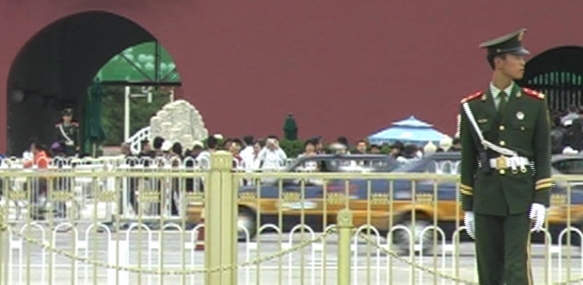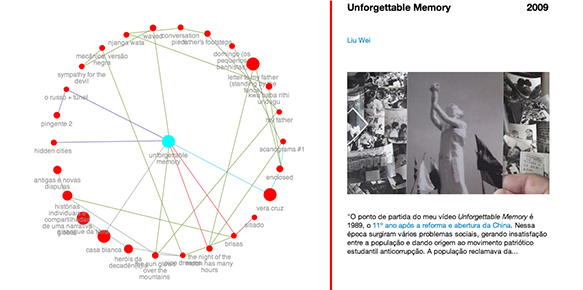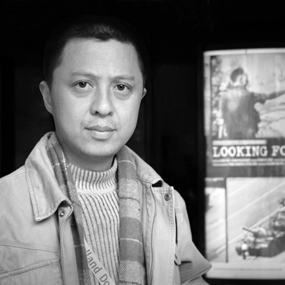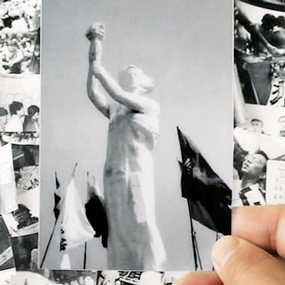Liu Wei
In China’s recent history and veiled forms of government control, Liu Wei finds the core subject of his work, which has been featured at renowned events and institutions throughout the USA, Europe and Asia (including New York’s MoMA PS1, Paris’ Centre Pompidou and the Sharjah Biennial, in the United Arab Emirates), as well as in three different editions of the Contemporary Art Festival Sesc_Videobrasil. However, due to its anti-establishment contents, Wei’s art has never been shown in China – recently awarded an artist residency in Latin America for his Unforgettable Memory (2009), the artist was not allowed to leave his country.
Unforgettable Memory, shown during the Festival’s 17th edition, in 2011, compelled curator Agustín Pérez Rubio to delve into the Videobrasil Collection, ultimately giving rise to the exhibition Unerasable Memories – a historic look at the videobrasil collection. In this video, Wei confronts his fellow countrymen with the world-famous picture of the man who faces up to war tanks by himself. The interviewees decline to discuss the events, and some even claim to be unaware of them. “Out of concern for their own safety or because of their own reality, people tend to carefully avoid the subject,” the artist says in an account available on PLATFORM:VB.
The collective forgetfulness is balanced out by the accounts and records provided by Wei, who took part in the Tiananmen Square protests met with violent repression by Deng Xiaoping’s administration in 1989 – Wei revisits universal history through his personal memories, using his own memory cues to connect history and reality. To the artist, those who refuse to remember are hypocritical and weak: “I would like these images to awaken our memories and recover our conscience. We cannot build our future based on lies. I hope we can resist this society and its indifference towards our memory.”
In a text written for the exhibition’s book, Ivana Bentes describes Unforgettable Memory as a “timeless, tragic manifesto” about the “sense of powerlessness in the face of death, of oblivion, of the photographs and what was left of the rebellious bodies of Chinese students and protesters confronted with power.”
China’s alienating, forged prosperity – publicized officially and widely, and coupled with the idea of a growing country in the process of opening up its economy and becoming globalized – also provides the backdrop to the pieces SARS (2003) and Underneath (2001), which are part of the Videobrasil Collection.
Learn more about the artist:




